- Learning time
- 40 minutes
- First play time
- 120 minutes
Phoenicia
Designed by: Thomas Lehmann
Phoenicia is a curious thing: an city-building game with no map, an adversarial undertaking with no combat. In modern terms – literally thousands of new titles are published every year – it’s approaching venerable status, having been originally appeared in 2007. However, it’s still available (see the check availability button) and, if you’re intrigued by what you read below, worth seeking out.
Setting up the game involves everyone taking tiles in their colour: Hunting, Farming, Storage and Training. You get workers occupying the starting spaces of hunting and farming, two discs (representing coins) in your storage and a worker in top half your training ground tile: currently ‘untrained’. Once untrained workers are trained (which costs cash) they can be assigned to the hunting or farming tiles, to boost both your victory points and your production – we’ll come to these shortly. You also begin with a production card: these have a value of 4, 5 or 6, and represent cash as well.
The game is a series of auctions: each round, a number of development cards will flip over matching the number of players, and then everyone gets the opportunity to bid on them. The cards all show a minimum starting bid on them, but you can bid whatever you like – as long as you can afford it. When you win a bid, you pay the money to the general supply and add the production card to your own player area and take the benefits. These might be the aforementioned points/production boosts (there is a track around the edge of the main board) additional workers, or additional storage. Some cards also get you extra tiles to add to your starter set, or flip one of the starting tiles over to its more productive/cheaper side. Some cards make future card purchases cheaper: to remind yourself of this, cubes in your colour are placed out on the main board: having the dyer card, for instance, makes the dyeworks card cheaper. Having two dyer cards makes it cheaper still. Once you’ve taken a development card in a round, you’re out of any subsequent bids; but you can choose not to bid at all.
Assuming they have cash to do so, everyone also gets the chance to train untrained workers (cost: two coins) and assign them to hunting, farming, or whatever other tiles you may have gathered. The reason is simple: all workers assigned here also boost your production and points!
Everyone has two markers on the scoretrack: one (a cylinder) for points, and the other (a disc) for production. Where your disc is dictates how much cash you’ll receive (ie production) at the start of the next round, with the current points leader bidding first. This continues until at least one player has reached or passed the 32 point mark on the score track; at which point the current round is played to its conclusion and then the player with the most points wins.
The guru's verdict
-
Take That!
Take That!
Players never attack each other, so although the game is quite interactive, it's the passive-aggressive auctions where competition is most pronounced.
-
Fidget Factor!
Fidget Factor!
Turns aren't terribly long at all, but there is a quick-quick-slow pace to proceedings, as everyone contemplates what they want, what they can afford, and on what to bid.
-
Brain Burn!
Brain Burn!
Phoenicia's calculation is not the rules - actually rather simple, despite the not-great rulebook - but the overlapping aspects of your own plans versus everyone else's. Just because you can get a card cheaply, does that mean you shouldn't try and force the bid up for others? Probably not. Reading the grey areas are key.
-
Again Again!
Again Again!
It's the type of game that demands repeat plays: on first sight, it seems rather opaque, but knowing the flow of the game (and ideally, the identity of the development cards!) transforms Phoenicia into a very different experience.

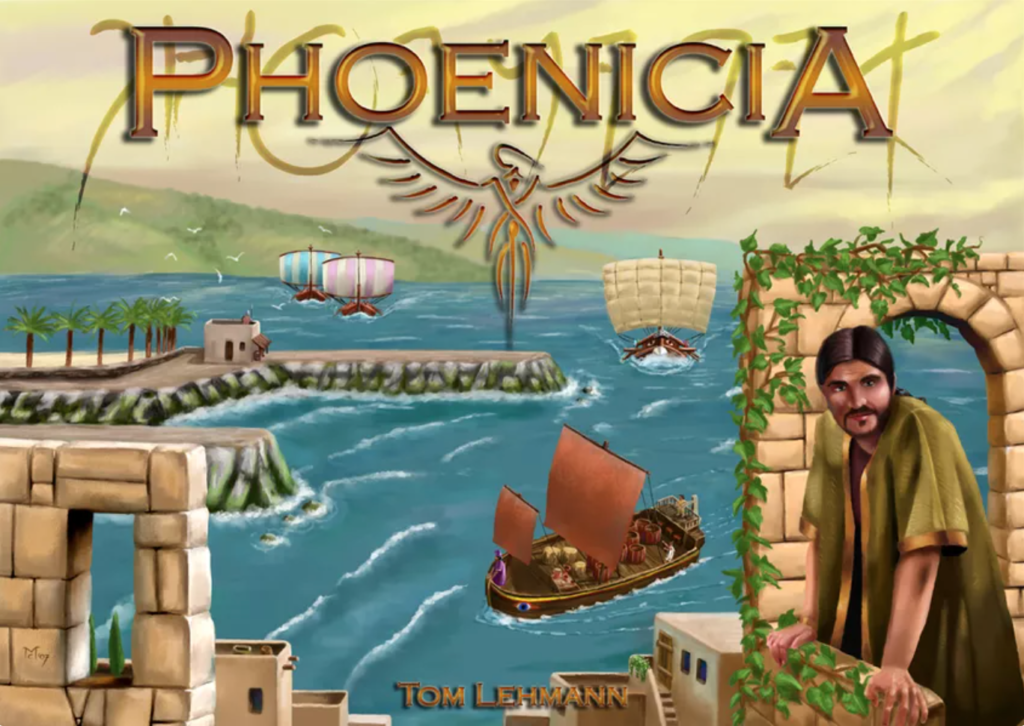
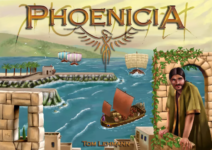
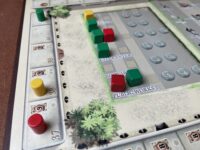
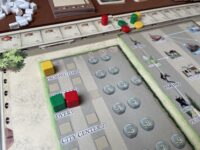
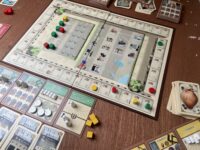
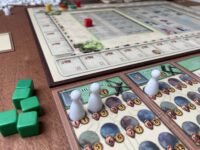
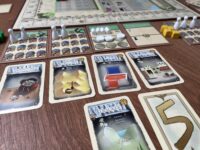


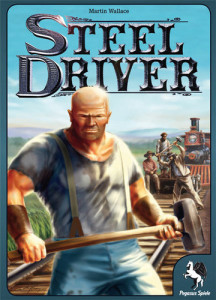

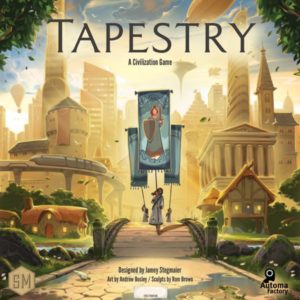
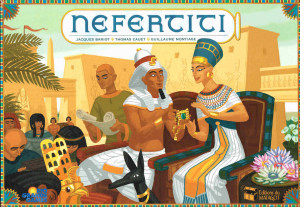
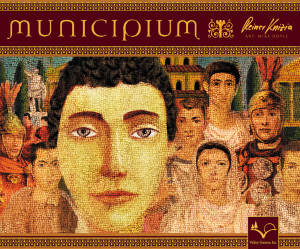
Sam says
You're building city-states rather than empires, so - refreshingly, perhaps - there is no conquest to speak of, no routes to build and no armies amassing over a map. A cynic might say it could have done with those things, because there is a sense that Phoenicia is an almost-abstract, of pushing two markers along a track as fast as you can: while the development cards have pictures and names such as Shipbuilding or Fort, your attention is largely focused on the numbers: what points am I getting here? How will my production improve? It can also be unforgiving: letting one player get off to a strong start means the others will have their work cut out to keep pace with them. How do you value things beyond the game's enforced minimum bid? Only by playing - and quite possibly losing! - will these things swim into focus, but they can also vary from play to play, as groupthink plays a part. Visually speaking, one could argue that Phoenicia does itself no favours with the dry, abstracted look. But once the game begins, it's clear there is a game here: if you like auctions, that is.